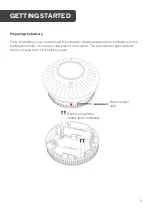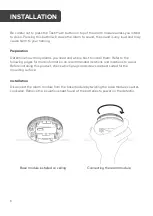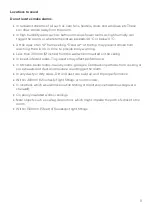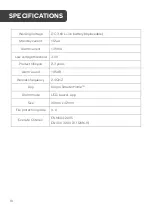
3
WARNING:
In case of an emergency, contact your local fire department.
•
Australia: Call 000 for Police, Fire and Ambulance services.
•
New Zealand: Call 111 for Police, Fire and Ambulance services.
Limitations of Smoke Alarms:
•
Smoke alarms have played a key role in reducing deaths resulting from home fires
worldwide. However, like any warning device, smoke alarms can only work if they are
properly located, installed and maintained and if smoke can reach the alarms.
•
Smoke alarms may not wake all individuals.
•
Smoke alarms cannot detect fires if the smoke does not reach the alarms. Smoke from
fires in chimneys or walls, on roofs or on the other side of closed doors may not reach
bedroom or sleeping area - especially if the bedrooms or sleeping area doors are closed
at night.
•
Smoke alarms may not have time to sound before the fire itself causes damage, injury,
or death, since smoke from some fires may not reach the unit immediately. Examples of
this include persons smoking in bed, children playing with matches, or fires caused by
violent explosions resulting from escaping gas.
•
Smoke alarms are not foolproof. Like any electronic device, smoke alarms are made of
components that can wear out or fail at any time. You must test the unit weekly to
ensure your continued protection. Smoke alarms cannot prevent or extinguish fires.
They are not a substitute for property or life insurance.
•
Smoke alarms have a limited life. The unit should be replaced immediately if it is not
operating properly. You should always replace a smoke alarm after 10 years from date
of purchase. Write the purchase date on the space provided on back of unit.
SAFETY & WARNINGS




































